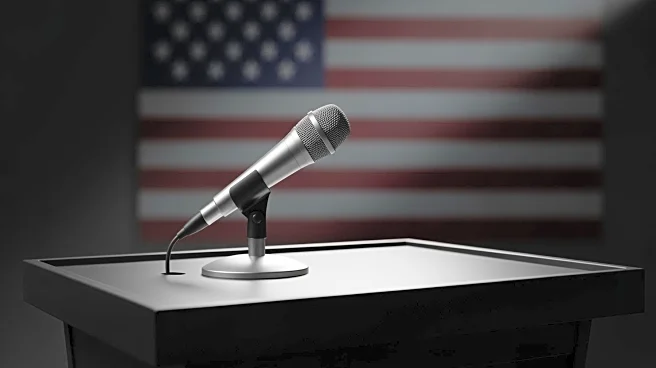What's Happening?
The Pentagon has implemented a new press policy that has resulted in the revocation of permanent credentials for journalists who refused to sign the agreement. This policy, introduced by Defense Secretary
Pete Hegseth, restricts journalists from soliciting unauthorized information, even if it is unclassified. As a result, major news organizations, including The New York Times and The Washington Post, are now barred from covering the Pentagon from within its premises. The policy marks a significant shift from previous norms, where journalists had more freedom to access and report on military affairs from inside the Pentagon.
Why It's Important?
The new press policy represents a significant change in how the Pentagon interacts with the media, potentially impacting the transparency and accountability of military operations. By limiting journalists' access, the policy could hinder the ability of the press to report on important defense-related issues, affecting public understanding and oversight. The restrictions may also discourage potential whistleblowers from coming forward, as the policy serves as a warning against unauthorized disclosures. The broader implications of this policy could influence how other government agencies approach media relations and press freedom.
What's Next?
Media organizations are considering their options in response to the new policy, which may include legal challenges to regain access or adjustments in their reporting strategies. Some outlets may increase their focus on international coverage to compensate for the reduced access to Pentagon information. The policy could also lead to increased efforts by journalists to cultivate sources outside the Pentagon to continue reporting on defense matters. The outcome of this situation will be closely watched by media and legal experts, as it could set a precedent for press-government relations in the future.











